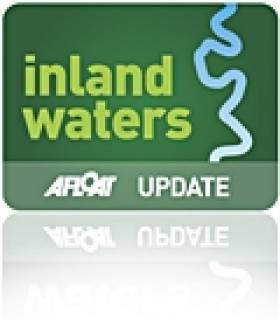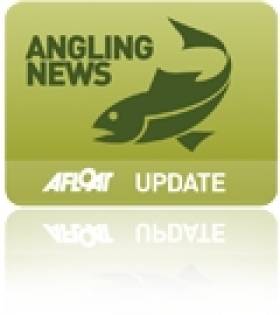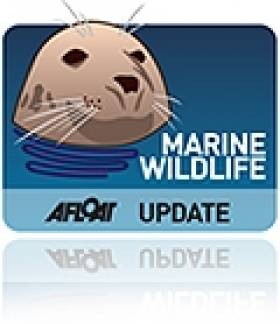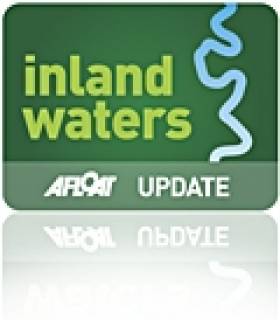Displaying items by tag: biodiversity
Amateur Photo Contest Celebrates Shannon's Biodiversity
#LIFE ON THE SHANNON - MulkearLIFE has launched its amateur photo competition for 2012, with a prize fund of €1,000 on offer.
The contest celebrates the 20th anniversary of the EU LIFE programme and has the theme of ‘Exploring the Biodiversity of the Lower Shannon’. Images may cover any aspect of the theme, and can be submitted in any style from macro to landscape, black and white or colour.
There is no end to what type of image can be submitted. It could be an image of water, trees, plants, fish, invertebrates, fungi, mammals, birds, lichen, domestic animals - basically any living organism.
Though not essential, images that portray biodiversity in and along rivers, streams and waterways throughout the Lower Shannon region would be preferred.
Entry is free, and entrants can submit up to three images. Prizes will be offered in two categories: Children/Young Adults and Adults.
In addition, the overall winner will receive one full day's training in wildlife and landscape photography from a leading wildlife photographer later in 2012.
Full details of how to enter the competition are available on the MulkearLIFE website HERE. The closing date is 1 May 2012 at 5pm.
Irish Bass Group Chair Gives Praise to 'Wolf of the Sea'
The chairman of the Irish Bass Group gave his praise to the fish described as the 'wolf of the sea' at a recent angling awards day.
John Quinlan told his audience at the Irish Specimen Fish Committee awards that Ireland has "something truly unique" in a marine fish that is reserved for recreational angling.
He also noted that "in spite of 21 years of bass protection, we have never felt secure enough to build the type of industry that this unique opportunity should justify."
Quinlan explained how bass play "a vital role" in the biodiversity of our inland waters, highlighting the interdependence between bass and sea birds.
“There are still magic days to be had bass fishing," he said, adding his belief that "anglers have a right to be involved in the management of our bass stocks".
He continued: "We have looked after them very well over the last 21 years and earned the right to be involved in any decisions about how they should be managed in the future. If we are to be successful we need to be taken more seriously by our Government."
Quinlan pointed to the potential benefits of angling tourism, an area that "has been lacking for far too long".
“The French call bass ‘loupe de mer’ or ‘the wolf of the sea’," he added. "These beautiful fish have hunted in our waters for centuries and I hope they continue to do so for many years to come.”
The Irish Times has more on the story HERE.
Ireland's First Biodiversity Audit Launched
Ireland's first ever biodiversity audit has revealed that our mountains, woodlands and waterways are home to more than 31,000 different species of plants and animals. For all the latest news on Irish marine animals click here.
Ireland's waters boast more than 560 different species of marine fish, most of which are perch-like or ray finned fish, while 29 different fish species inhabit Irish inland waterways.
The state of knowledge report also found that popular species of plants, birds or mammals make up just one in ten of all species in Ireland.
Dr Liam Lysaght of the National Biodiversity Data Centre told the Irish Independent that the report "will for the first time allow us to accurately describe Ireland's biological resources and identify the knowledge gaps that exist".
http://www.independent.ie/national-news/irelands-wildlife-audit-revealed-2591440.htmlScientists joined with State bodies, NGOs and third-level institutions last August to conduct the survey of Ireland's plantlife and wildlife.
Minister for Arts, Heritage and Gaeltacht Affairs Jimmy Deenihan said that the protection of Ireland's biodiversity "is not a luxury".
The report is available online at biodiversity.biodiversityireland.ie
Ireland's first ever biodiversity audit has revealed that the country's mountains, woodlands and waterways are home to more than 31,000 different species of plants and animals.
The survey reveals that Ireland's waters boast more than 560 different species of marine fish, most of which are perch-like or ray finned fish, while 29 different fish species inhabit Irish inland waterways.
The state of knowledge report also found that popular species of plants, birds or mammals make up just one in ten of all species in Ireland.
Dr Liam Lysaght of the National Biodiversity Data Centre told the Irish Independent that the report "will for the first time allow us to accurately describe Ireland's biological resources and identify the knowledge gaps that exist".
Scientists joined with State bodies, NGOs and third-level institutions last August to conduct the survey of Ireland's plantlife and wildlife.
Minister for Arts, Heritage and Gaeltacht Affairs Jimmy Deenihan said that the protection of Ireland's biodiversity "is not a luxury".
The report is available online at biodiversity.biodiversityireland.ie
'Natural Prawn Killers' Pose Threat to Irish Marine Life
Irish boatowners and fishermen on inland waterways have been urged to remain alert to the prospect of so-called 'killer shrimp' invading Ireland's waters.
The dikerogammarus villosus shrimp - which has spread aggressively throughout Europe in the past decade and was discovered in England last year - could have "dire consequences" for the biodiversity of Ireland's rivers and lakes.
Kevin Flannery of Dingle Oceanworld told the Sunday Independent: "These invasive species are very aggressive and take over from the native species - and change the whole environment and ecosystem."
The killer shrimp is larger that its native cousin, making it a more deadly predator. It is known to attack insect larvae, baby fish and native shrimp.
"The shrimp will eat the primary source of food for the trout and salmon and other indigenous species which have been here for billions of years," said Flannery.
The killer shrimp has spread mainly by attaching to boat hulls at the larval stage, promping Flannery to urge all fishermen and boatowners to disinfect their vessels before using them in Irish waterways.
































































